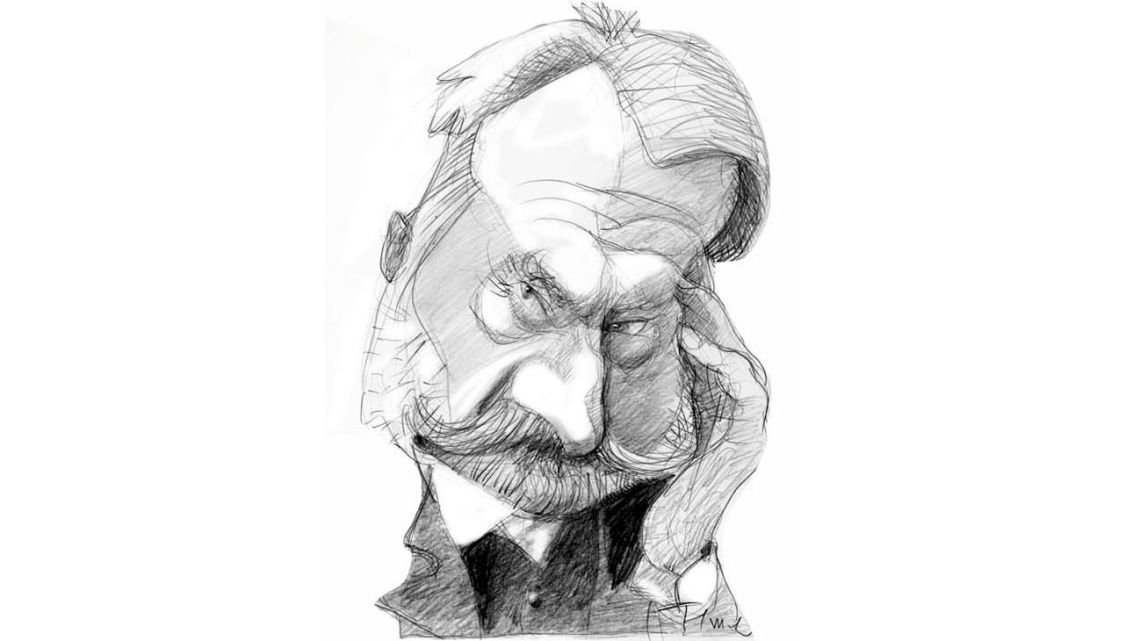
Which West are they talking about when they talk about the West? This question arises when you listen to influential people in Argentina preaching the defense of “Western values” and claiming that defending the West means having children, even if you don’t have any. For many, the West belongs to Christianity (although they were the first to violate the teachings of Jesus). However, “Western civilization” was never a pure mass, but an amalgamation of Greek, Roman, Arab, Chinese, Phoenician, Indian, Mesopotamian, Egyptian, and African influences. Our alphabet originates from the Phoenicians. And our numbers are from the Arab tradition, learned from the wise Indians. Christianity has roots in Judaism, Egypt, etc., so the foundation of the West is not Christianity. They taught us a linear and autonomous West, ignoring the influence of the East and other civilizations, and believed that Enlightenment, social rights, and democracy were the achievements of Christianity, when in reality they were achieved despite Christianity and his fanaticism.
The “Christian West,” which today calls itself the guardian of freedom and tolerance, did not arrive at those values through a sudden enlightenment. They didn’t wake up one day and abandon the bonfires, censorship, and persecution. After centuries of tensions, debates, painful reforms, and social struggles, religious institutions and states were forced to reluctantly open themselves to new ideas about rights, dignity, and freedom. The same Western world produced Tomás de Torquemada, a symbol of power willing to persecute in the name of faith. The principles that are presented today as pure inheritance were actually struggles and conquests that would be classified as enlightened. Today, political and religious movements seek to reconstruct a “West” that is more medieval than the Enlightenment or the social changes of the 1960s and 70s, but when they refer to “traditional Western values,” they speak of medieval values. In other words, the West they prefer is one that oppresses, punishes, controls, and demands obedience and obedience.
After the fall of the Roman Empire, much of the learning of Greek was lost or persecuted by Christian fanatics. It was the Arabs who rediscovered, translated and preserved the Greek language during the darkest centuries of the Middle Ages. The very foundations of what we today call the West were saved by them. They revived Greek philosophy at a time when the Catholic Church persecuted and banned these texts.
Authoritarians don’t like this
The practice of professional and critical journalism is a fundamental pillar of democracy. That is why it bothers those who believe that they are the owners of the truth.
A pagan temple was attacked. Alexandria’s famous library was destroyed years later by fanatics who murdered Hypatia of Alexandria, a woman with the most brilliant and scientific mind in history. He defended reason, science, and knowledge against superstition. In 415, she was dragged from her home by a Christian mob, stripped naked, stoned, quartered and burned in a church, ending the Age of Reason and the history of free thought.
In The Age of Darkness (2017), British historian Catherine Nixey reminds us that Plato’s nearly 1,000-year-old Academy closed its doors forever, and not even the Acropolis was saved. The Church is said to have preserved Latin and Greek, but in reality it destroyed all traces of the cosmopolitan world of Alexandria and Athens, turning wisdom into foolishness. Works by philosophers and works by Democritus were banned (including his atomic theory, which completely disappeared). Only 1% of Latin literature survived, 99% was lost. Nixie points out that for the first time, everything from food to sex was brought under religious control.
First, Christianity was established as the state religion. And already in 529, Justinian I banned the education of philosophers, forced baptism, and closed all pagan schools of philosophy. Shortly thereafter, the last seven philosophers of Plato’s Academy fled to Persia, taking with them their few remaining works. Athens was no longer a place for philosophers. The Academy was closed for the first time in 900 years, the library was burned, and the Greco-Latin parchment was scraped to write religious prayers.
Christianity led generations to believe that its “victory” was celebrated by the whole world, and they believed it too. Visit the Archaeological Museum of Athens. Discovered in 1889 and called “Christianized Aphrodite,” Aphrodite’s head is disfigured with a cross on her forehead, broken eyes, and no nose.
Subsequently, Copernicus’s writings were restricted, and Galileo Galilei was forced to recant his heliocentric theory under threat of imprisonment, while his writings were included in the Catholic Church’s Index of Forbidden Books (valid from 1564 to 1966), along with Descartes, Montesquieu, Bruno, Hobbes, Victor Hugo, Hume, Kant, Voltaire, and Sartre.
Aristotle was discussed at the University of Paris, founded in 1150, and in 1210, the reading and teaching of his works was prohibited by excommunication. Centuries later, Giordano Bruno defended the infinity of the universe and the existence of other worlds, an idea that clashed with dominant theology, for which he was arrested and burned at the stake in Rome in 1600. The Inquisition, which began in France in 1184 and intensified in Spain from 1478 to 1834, restricted people’s intellectual freedom by controlling the teaching, research, and dissemination of ideas through torture and burning. For centuries. American activist Katherine Furlinger argued that “if the church hadn’t dragged science down and put our best minds at risk, we’d be 1,500 years further along.”
Nixey points out that the West inherited sexual shame from Paul and Augustine, and it took more than 1,000 years to see homosexuality as anything other than a perversion or a crime, and today the New Right movement is trying to revive that vision. Women’s bodies were subject to strict religious control, and until the 18th century, the burning of witches was the first mass femicide legalized by the state and church. Juan José Cebreri argued that religious sexism underlies misogyny, reflected in the cremation of widows in Hinduism, the stoning of adulterers in Islam, the burning of witches in Christianity, and the misogyny that leads to femicide. The Talmud also tells us to thank God for not being born a woman, and the Bible says that women were created from Adam’s rib and are associated with sin. Augustine demonized the “second sex,” and Thomas Aquinas saw it as defective and subordinate, reducing her to a reproductive tool and fueling religious domination over her body expressed in the taboos of virginity and the sin of sexual pleasure. In a nutshell, it was all about “the constant preaching of following the established, no matter how unfair it is.”
Many people confuse the political with the spiritual, presenting the West as a “cradle of freedom” born of Christianity, which is historically absurd. A cradle you can’t get out of is not a cradle, it’s a cage. Today we seem to be aware that the theocratic past is being tried once again to tempt society with crosses, crusades, and false prophets. We cannot allow ourselves to return to a world that is more medieval than democratic. Democracy, social progress, and rights (including religious freedom) were built with great difficulty, not because of religion, but despite religion. Religion should remain in the lives of individuals, not directly in politics.



